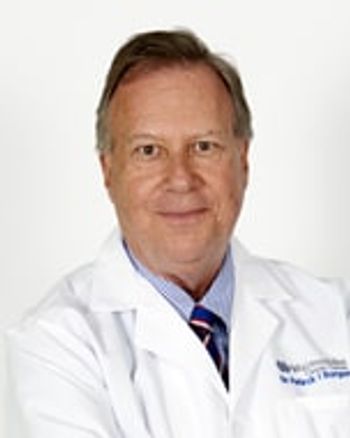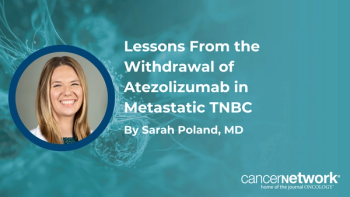
- ONCOLOGY Vol 22 No 5
- Volume 22
- Issue 5
Essential Nutrient Found in Eggs Reduces Breast Cancer Risk by 24%
Choline, an essential nutrient found in foods such as eggs, is associated with a 24% reduced risk of breast cancer, according to a study supported by a grant from the US National Institutes of Health (NIH), to be published in the Federation of American Societies for Experimental Biology (FASEB) Journal's print issue in June.This study adds to the growing body of evidence that links egg consumption to a decreased risk of breast cancer.
Choline, an essential nutrient found in foods such as eggs, is associated with a 24% reduced risk of breast cancer, according to a study supported by a grant from the US National Institutes of Health (NIH), to be published in the Federation of American Societies for Experimental Biology (FASEB) Journal's print issue in June.This study adds to the growing body of evidence that links egg consumption to a decreased risk of breast cancer.
In this new case-control study of more than 3,000 adult women, the risk of developing breast cancer was 24% lower among women with the highest intake of choline compared to women with the lowest intake. Women with the highest intake of choline consumed a daily average of 455 mg of choline or more, getting most of it from coffee, eggs, and skim milk. Women with the lowest intake consumed a daily average of 196 mg or less.
"Choline is needed for the normal functioning of cells, no matter your age or gender," says Steven H. Zeisel, MD, phd, University of North Carolina, who is an author of the study and a leading choline researcher. "Increasing evidence shows that it may be particularly important for women, particularly those of child-bearing age."
Only 10% of Americans currently meet the recommended intake for choline, identifying a need to increase choline intake across the population. According to the Institute of Medicine, adequate choline intake is 550 mg/d for men and breastfeeding women, 425 mg/d for women, and 450 mg/d for pregnant women. One egg contains 125.5 mg of choline, or roughly a quarter the recommended daily supply, making eggs an excellent source of this essential nutrient. Choline is found exclusively in the egg's yolk. Other top food sources of choline include liver, wheat germ, and cauliflower.
Eggs and Decreased Risk of Breast Cancer
Two previously published studies, supported by NIH grants, have shown that women who eat eggs have a lower risk of developing breast cancer:
- A study published in Breast Cancer Research in 2003 by researchers at Harvard University found that eating one egg per day was associated with an 18% reduced risk of breast cancer.
- A study of Chinese women published in Cancer Epidemiology, Biomarkers & Prevention in 2005 showed that for those who reported eating at least six eggs per week, the risk of developing breast cancer was 44% lower than for those who ate two or fewer eggs per week.
Articles in this issue
almost 18 years ago
SBRS to Manage Painful Bone Metastases: The Challenges Aheadalmost 18 years ago
Unanswered Questions About SBRT in Bone Metastasesalmost 18 years ago
Compact Guide to Breast Cancer Medical Treatment Availablealmost 18 years ago
New Drug Application Submitted for Casopitant in CINValmost 18 years ago
Oncotype DX Test Expanded to Include ER and PR Scoresalmost 18 years ago
US Oncology Launches Oncology-Specific Service for Billing and Reimbursementalmost 18 years ago
Gemcitabine Improves Overall Survival in Early-Stage Pancreatic CancerNewsletter
Stay up to date on recent advances in the multidisciplinary approach to cancer.
Related Content


Molecular Interception: Discussing the Future of Surgery in Breast Cancer

Lessons From the Withdrawal of Atezolizumab in Metastatic TNBC


















































